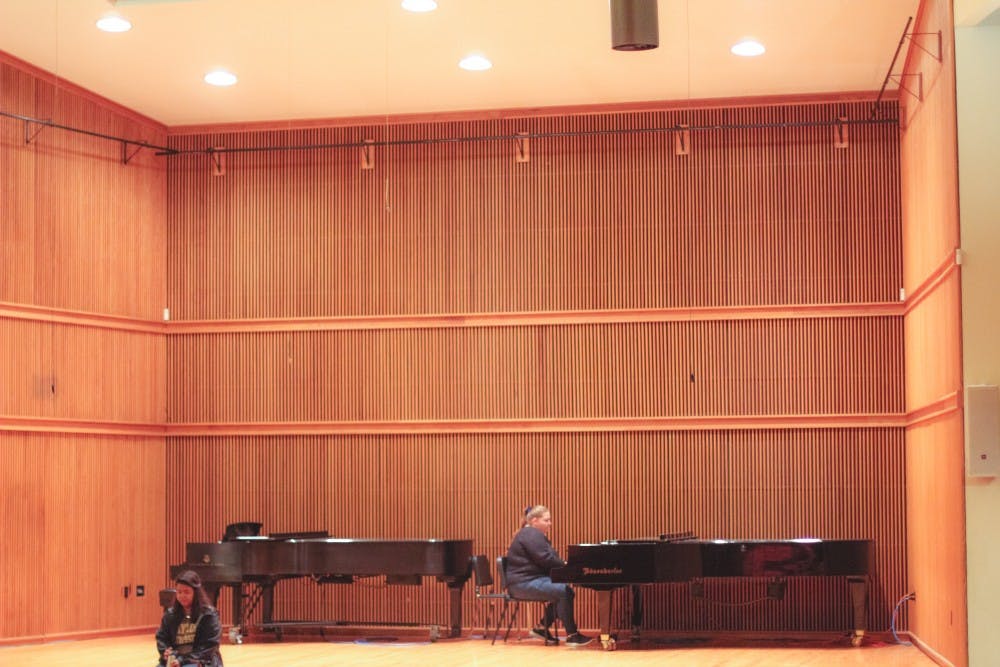By Elizabeth Hartmann | Echo
The music of rejoicing voices replaced the cacophony of gunfire 100 years ago. Taylor is still remembering that day.
Poetry and music will be combined in a recital called "Remembrances of War." According to a press release, Lorne Mook, associate professor of English, and Dan Bowman, associate professor of English, will be reading poetry by and about WWI soldiers. Leon Harshenin, professor of music, and Christopher Bade, professor of music, will be performing songs pointing to the consequences of "the war to end all wars."
Harshenin will be playing four of the six movements of "Le tombeau de Couperin" or "The Tomb of Couperin" that was written in 1914-1917 by Maurice Ravel.
Ravel served as an ambulance driver during WWI and each of the movements he wrote are dedicated a friend which he lost in the war.
According to the favorite classical composers website, the first movement, Prélude, is dedicated to Jacques Charlot who had transcribed some of Ravel's music for solo piano. The third movement is called Forlane, which is written in memory of Gabriel Deluc who was a Basque painter Ravel met in the Pyrenees.
Rigaudon, the fourth movement, is written to remember two brothers who were family friends, Pierre and Pascal Gaudin. On their first day on the front, both brothers were killed with the same shell.
During his time on the front, Ravel wrote to the Dreyfus family where he spent time recovering before he was released from service because of this weak heath. The fifth movement, Menuet, is dedicated to Jean Dreyfus, the stepson of a woman Ravel wrote to.
"I want this music to contribute to the process of remembering this cataclysmic event in history, which tragically caused the death of 16 million people," Harshenin said. "To me, this music is wistful and poignant, joyful at times but tinged with melancholy."
Harshenin has personal ties to WWI. His step-grandfather fought on the Western Front in France in the final year the war, and his mother's father, who was a Mennonite living in Russia, worked as a cook in the military camp. To remember them on the centennial, he will be showing slides of them at the recital before he performs.
For students interested in commemorating the centennial of the Armistice through poetry and music, this free recital will take place in the Recital Hall on Thursday, Nov. 8 at 7:30 p.m.
"I also hope that people will come away from this weekend pondering what we and individuals and as a country can do to prevent such a destructive conflagration from every happening again," Harshenin said.





